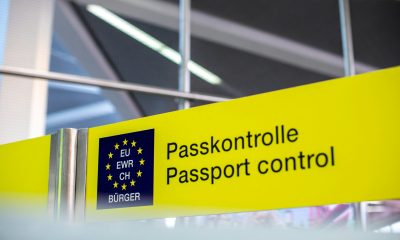בילדונג
#TeachingEU: '44% פון אייראפעער פארשטייען נישט וויאזוי די אי.יו. ארבעט '

 Would learning about the EU at school help to better understand what it is really all about? On Monday 11 April MEPs debate a non-legislative report calling on member states to have schools teach more about European issues to enable people to better engage with the EU. They will vote on it the following day. We spoke to report author Damian Drăghici, a Romanian member of the S&D group, ahead of the debate.
Would learning about the EU at school help to better understand what it is really all about? On Monday 11 April MEPs debate a non-legislative report calling on member states to have schools teach more about European issues to enable people to better engage with the EU. They will vote on it the following day. We spoke to report author Damian Drăghici, a Romanian member of the S&D group, ahead of the debate.
In your report you say that if young people were better informed about the EU, they would be more engaged and interested in the European project. Isn't this oversimplifying the causes of increasing euroscepticism and political apathy we are witnessing in some countries?
I don’t think so. According to a survey, 44% of Europeans don’t understand how the EU works and many feel they don’t have a voice in the European Union. I believe that if I was a young adolescent, I would want to know my rights, and know not only my history and the European history, but how I could get involved in creating a better European Union and a better European project. Especially in this time when euroscepticism is growing enormously.
How many member states are already including an EU dimension in their curricula and how many are not? Why do you think some countries are still not including it?
לויט צו אַ מעלדונג פון 2013 most member states had some content regarding the EU included in school curricula at all levels of education, except for four where no mention was found in primary education. However, the content was often fragmented, not progressive, too general and lacked both consistency and complementarity with other subjects taught, making it hard for children to truly understand what the EU is all about. Of course this area is subject to subsidiarity and the EU has very limited competence regarding this, but I believe that after this report we should be able to get the Union in all 28 member states' programmes.
How should member states teach about the EU in schools?
The most important thing is to provide information that can make pupils and students interested. It doesn't have to be a challenge, it doesn’t have to be very technical, because all of us who remember when we were in school, we liked things that were quite simple. I believe that the information should be provided simply and digestible.
שער דעם אַרטיקל:
-

 קאנפליקטןקסנומקס טעג צוריק
קאנפליקטןקסנומקס טעג צוריקקאַזאַכסטאַן טרעט אריין: ברידגינג די צעטיילונג פון אַרמעניאַ-אַזערביידזשאַן
-

 ענלאַרגעמענטקסנומקס טעג צוריק
ענלאַרגעמענטקסנומקס טעג צוריקאי.יו. געדענקט דעם אָפּטימיזם פון 20 יאָר צוריק, ווען 10 לענדער האָבן זיך איינגעשריבן
-

 מאָטאָרינגקסנומקס טעג צוריק
מאָטאָרינגקסנומקס טעג צוריקפיאַט 500 ווס מיני קופּער: אַ דעטאַילעד פאַרגלייַך
-

 קאָוויד-19קסנומקס טעג צוריק
קאָוויד-19קסנומקס טעג צוריקאַוואַנסירטע שוץ קעגן בייאַלאַדזשיקאַל אַגענץ: דער איטאַליעניש הצלחה פון ARES BBM - Bio Barrier Mask



























